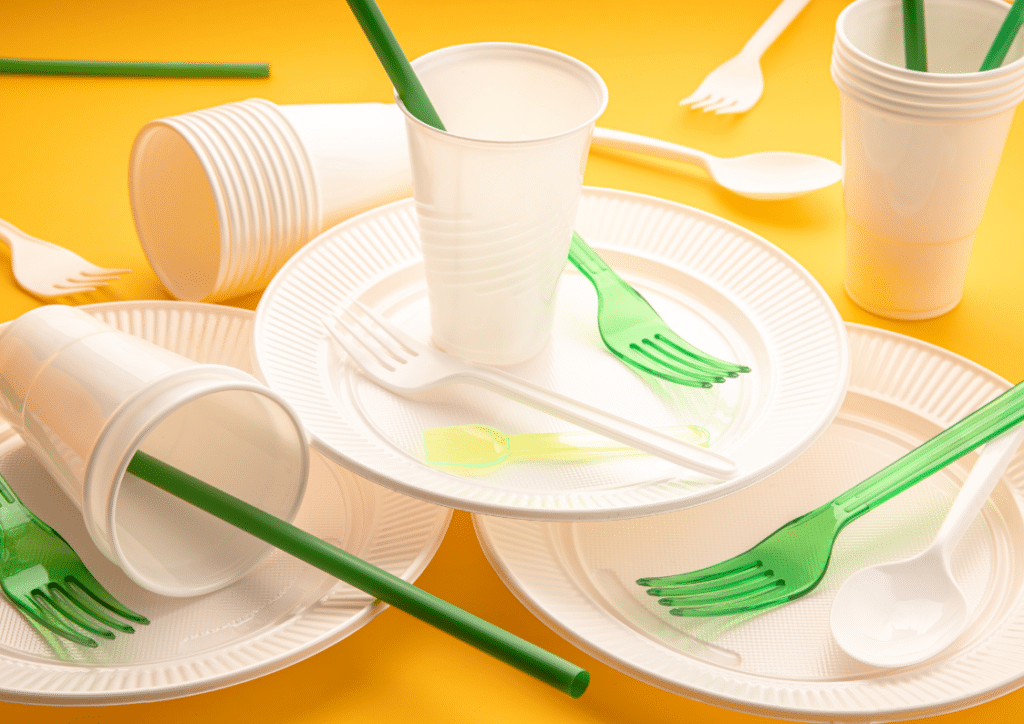The UK government looks to implement a ban on single use plastic plates and cutlery, but it will unlikely be enforced until April of 2023.
—
What is Happening?
- The UK government has announced plans to ban single use plastic plates and cutlery, as well as polystyrene cups in an effort to reduce the impact of plastic waste on the environment and human health.
- A public consultation on the plastic ban will launch in the autumn and welcomes any suggestions on eliminating other items.
- Due to the relatively slow legislative process, the UK plastic ban will unlikely come into force until April 2023.
Since adopting the plastic carrier bag charge in 2015 where plastic bag use has cut by 95%, the UK is hoping to further reduce plastic waste and its effect on the environment and oceans by introducing government plans to ban all single use plates, cutleries, and polystyrene cups in the country.
Each person in England uses 18 single use plastic plates and 37 single use plastic items of cutlery on average every year, according to government figures. A plastic ban would significantly reduce the amount of plastic waste generated in the UK.
A public consultation will be open in the autumn for residents to provide feedback on the plastic ban and whether the government should also include other items to the ban. The plans will also look to impose a plastic packaging tax, which will charge USD$275 (£200) per tonne for plastic that has less than 30% recycled content, in a move to encourage greater use of recycled materials.
Other measures the plan hopes to implement under its Environment Bill is a deposit return scheme on plastic bottles to encourage consumer recycling, as well as extended producer responsibility, which shifts the responsibility of recycling and disposal of packaging after consumer use to companies and manufacturers.
“We’ve all seen the damage that plastic does to our environment,” said UK environment secretary, George Eustice. “It is right that we put in place measures that will tackle the plastic carelessly strewn across our parks and green spaces and washed up on beaches. We have made progress to turn the tide on plastic, now we are looking to go a step further.”
Many countries have already enacted a ban on single use plastics or in the process of doing so. The EU has banned single use plastic products, expanded polystyrene, and all products made of oxo-degradable plastic earlier in July, while India will be banning the manufacturing and use of single use plastic items from July 2022.
While environmental groups and campaigners welcome the plastic ban, many have said that the UK is doing far too little and is moving at a “snail pace” in dealing with plastic waste. Considering the time it’ll take for the public consultation and for the legislation to go through the UK parliament, the plastic ban is not expected to be enforced until April 2023 – far later than most countries.
However, the UK government is also looking ahead in the possibility of eliminating items including crisp packets, PVC cling film, fruit and vegetable stickers, plastic coffee pods and tea bags by 2025.
You might also like: 15 Ways to Reduce Your Plastic Waste


















